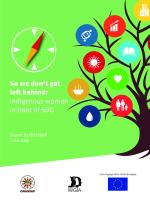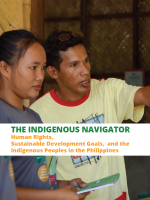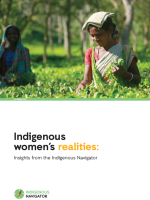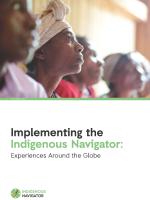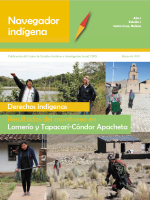So we don’t get left behind: Indigenous women in front of SDG
New publication from ONAMIAP in Peru
Peru is marked by inequalities that have condemned generations to survive in precarious conditions and deprivation. The great promise of “inclusion” has not led to social progress. However, a period of several years of economic boom created the fantasy of Peru becoming a middle-income country and thus, in a position to join the Organization for Economic Cooperation and Development (OECD). From 2014 onwards, an economic slowdown began to be felt and reduced revenue was collected for the national treasury.
In 2017, after nearly 20 years, the monetary poverty rate started to grow. With enormous ease, that year 400,000 Peruvians fell into poverty. Although the sustained path of poverty reduction was put back on track, this situation warned of the fragility of Peruvian “prosperity”.
In their desperate desire to achieve economic reactivation, successive Peruvian governments as their primary measure have concentrated on granting facilities and benefits to investments from large private companies, especially those in extractive and agro-industrial activities, which are based on policies of territorial dispossession of indigenous peoples.
Consequently, with governments focused on economic growth at any social cost, a year prior to Peru celebrating its bicentenary, the country has been unable to guarantee the fundamental rights to dignified work, education, comprehensive health care, safety and a life free from violence. This situation exists despite the international commitments of the Peruvian State regarding the protection of individual and collective human rights, as well as the environment.
In 2015, the Peruvian State, as a member of the United Nations, approved the 2030 Agenda for Sustainable Development, as a roadmap to end poverty and ensure that no one is left behind. Five years later and with the COVID-19 pandemic entering our indigenous communities, the dream that no one will be left behind by 2030 is disintegrating. However, it also represents an opportunity for the State to reduce the enormous inequality gaps that today cause our indigenous sisters and brothers to die not only from COVID-19, but also from the absence of free-of-cost and timely care.
Therefore, as part of the process of presenting the second Voluntary National Review (VNR) of the Government of Peru at the United Nations High-Level Political Forum to report on the progress of implementation of 2030 Agenda in the country, the National Organization of Andean and Amazonian Indigenous Women of Peru (Organización Nacional de Mujeres Indígenas Andinas y Amazónicas del Perú- ONAMIAP) have prepared the report “The implementation of the Sustainable Development Goals (SDGs) in relation to indigenous peoples and women in Peru”. The document focuses on the “Strengthening of human well-being and capabilities” axis and the statistical data presented in relation to Sustainable Development Goals (SDG) 1 and 4 to demonstrate the persistent and historical debt that the Peruvian State has to indigenous peoples.
The coronavirus pandemic highlights the enormous social inequality and the concentration of opportunities and benefits for a few not only affects the well-being of indigenous peoples, but also the general stability of our country. The Sustainable Development Goals and 2030 Agenda risk becoming one more of the many commitments that are not achieved. The health and economic crisis generated by the spread of COVID-19 is teaching us that we must raise the bar of these goals and put life and individual and collective human rights at the centre of all public policies, above profit, to make this planet a place where Good Living (Buen Vivir) and a Full Life (Vida Plena) are possible.
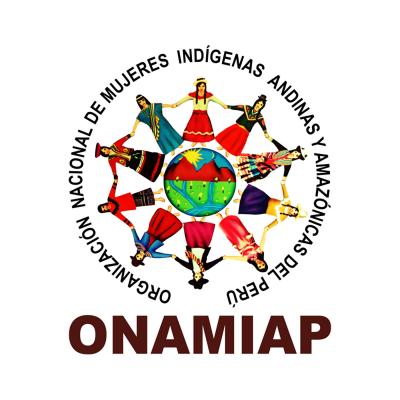
Organización Nacional de Mujeres Indígenas Andinas y Amazónicas del Perú (ONAMIAP)
Contact

